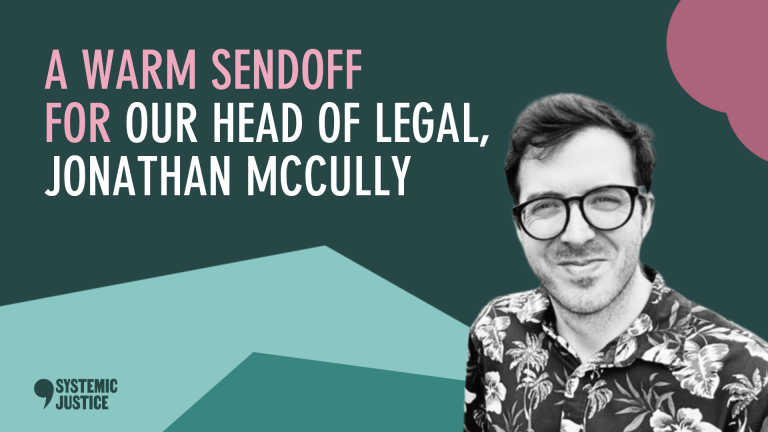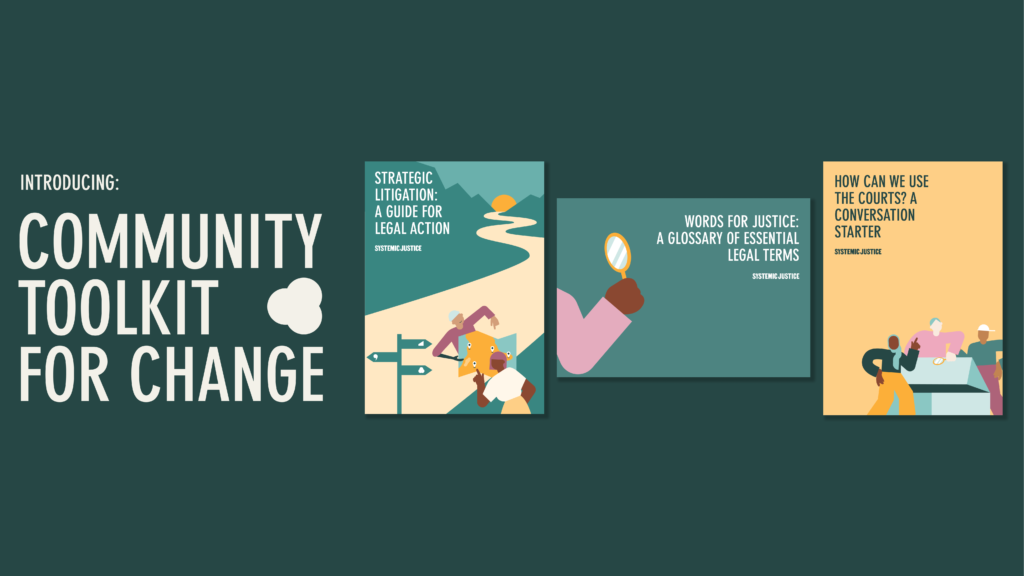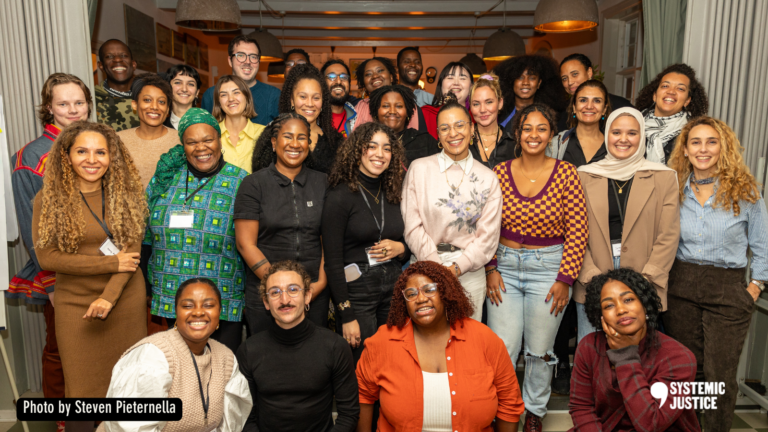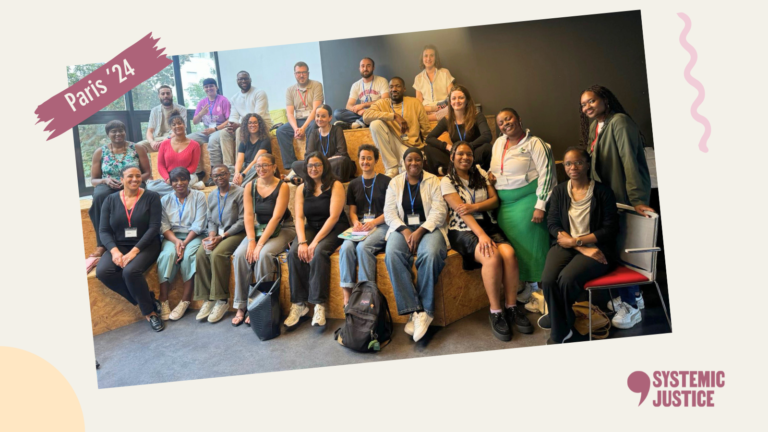
A Warm Sendoff for our Head of Legal, Jonathan McCully
Like many great ideas, the conceptualisation of Systemic Justice started on the back of a cocktail napkin. It was February 2020, and Jonathan and I
Strategic litigation can be a powerful tool in the fight for racial, social, and economic justice. It can help bring about change in regulation, law, policy, or practice.
Yet all too often, marginalised communities are unable to take advantage of the full potential of litigation for their causes and campaigns. Access to legal knowledge is often mediated by lawyers or legal advisors, which can perpetuate unequal relationships between communities seeking justice and the legal system.
Communities should be able to make informed choices about how they want to incorporate strategic litigation in their campaigns for change.
At Systemic Justice, we aim to help build the knowledge and power of communities, movements, and collectives resisting injustice by:
The free resources we provide are for groups and organisations who are considering whether legal action is for them, and who wish to learn more about litigation, on their own terms. The topics and format of the resources we develop are directly informed by the needs of the organisations, movements, and collectives we work with.
We completed an initial needs assessment in November 2022, collecting feedback in the form of a survey, drop-in calls, email questionnaires, and voice notes. The following subjects emerged as priority topics for learning and knowledge building:
The input we received emphasised the need for a diverse range of accessible resources and tools; including guides, factsheets, explainers, videos, podcasts, workshops, and drop-in clinics. We are committed to making all resources and tools accessible by design, and making them available in multiple formats and languages.

Based on the input received, we have produced a Community toolkit for change: Resources for leveraging the courts, in 2023. The toolkit includes the following resources;
The resources are free to download and use under a creative commons license.
In the next few months, we will launch interactive and accessible versions of these resources, as well as French and Spanish translations. We will also organise workshops to talk through the resources and how they can be used by communities in their campaigns for change. If you are interested in helping us out in making these resources accessible in different languages, get in touch with us at knowledgeandpower@systemicjustice.ngo
We will continue to consult communities working on racial, social, and economic justice issues to ensure that these resources directly benefit their work. The next consultation will take place in Spring 2024, so if you are interested in sharing input please get in touch.
We hosted a webinar to celebrate the launch of our guide for legal action, the glossary of essential terms, and strategic litigation conversation starter.
In the webinar, we introduced the resources and collectively explored how communities can leverage the courts for change in conversation with community activists and lawyers.

Like many great ideas, the conceptualisation of Systemic Justice started on the back of a cocktail napkin. It was February 2020, and Jonathan and I

“Togetherness.” “Sunshine.” “Community care.” “That we are powerful.” These are some of the responses participants shared on what they were grateful for as they were

One of the obstacles to bringing court cases can be financial. Getting legal advice can be expensive due to lawyers’ fees, and what bringing an

Last Saturday, Systemic Justice held its first bilingual one-day workshop on strategic litigation. The workshop took place in Saint-Denis, Paris, and was co-hosted with Ghett’Up,

Like many great ideas, the conceptualisation of Systemic Justice started on the back of a cocktail napkin. It was February 2020, and Jonathan and I

“Togetherness.” “Sunshine.” “Community care.” “That we are powerful.” These are some of the responses participants shared on what they were grateful for as they were

One of the obstacles to bringing court cases can be financial. Getting legal advice can be expensive due to lawyers’ fees, and what bringing an
Sign up for our newsletter and we’ll keep you up-to-date on our work!